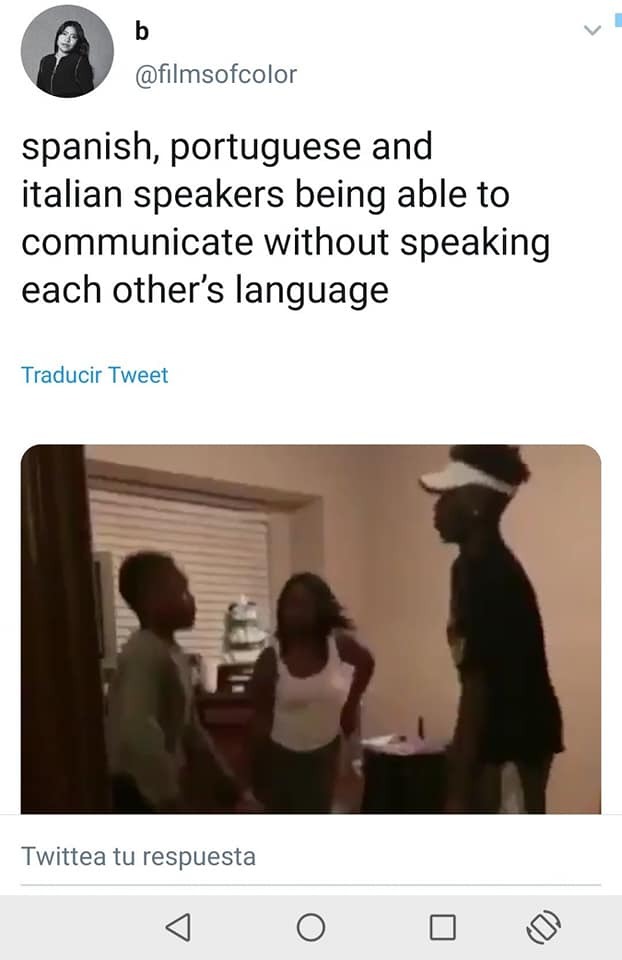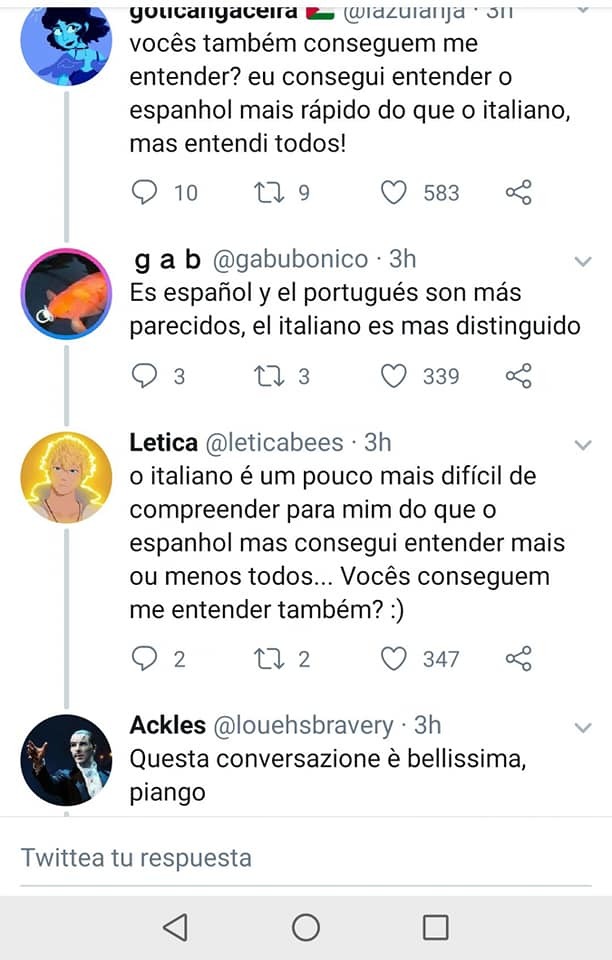· Zuza · 23 · Poland · main: @sunsetinthecity · fluent: Polish, English, French · learning: Spanish, Romanian · feel free to ask/message me! :D
Don't wanna be here? Send us removal request.
Text
A poor, single person from Poland would probably buy a pack of frozen veggies to fry and cook some rice with it, alternatively go for ready-made sauce in a jar and pour it over pasta. They might as well buy some canned stew (/meat and veg type of meals) and cook mashed potatoes with it.
Reblog with the stereotypical meal of a poor single person in your country!
It varies in the US, but the stereotype I know of is Top Ramen and some kind of soft drink.
874 notes
·
View notes
Text
some things i’ve learned while studying in quarantine
drink more water instead of more coffee.
weekly goals are bullshit. set yourself 3-day goals. you’ll be less laid-back.
don’t just mindlessly stare at words. before you start studying, know your approach to it. have a plan.
summarizing the concept in your own words is the key part of taking notes. don’t just copy things down, convert them into your own way of talking, your own vocabulary, no matter how dumb and unprofessional it sounds.
don’t let the “studyblr aesthetic” fool you. studying doesn’t have to be pretty. summaries and notes can be messy as long as they’re comprehensible. you can always rewrite and reorganize them later. (honestly, you better do. and you better keep them.)
don’t throw away the papers you’ve solved your problems in. staple them to the fucking textbook. you need to see them constantly. cause you’ll need reminders of how far you’ve came, when you’re feeling discouraged.
don’t be an armchair analyst for your issues. if you have an idea then act on it.
remember: the exact point where it becomes difficult, is where your growth begins. take a deep breath, and try to focus on the paragraph in front of you.
get off your high horse and understand that if you’re a zero, you won’t go to 100 in a couple of days. first, you’ll need to reach 30, then from 30 to 60, and then from 60 to 90. nobody is 100 everyday. that happens very rarely.
you need to have fun everyday. you need to have peaceful time every single day. even on exam night. especially on exam night, actually. so make sure you’ve studied enough so you can have some time to yourself.
once you’re on a roll and in need of some challenge to stay on track, start writing down your studying hours. tell yourself you’re not allowed to do less than 80% of what you did yesterday. whatever the hell it was, even just one hour. so if yesterday you really studied for like, say 8 hours, today your goal is to study for at least 6 and a half hours. if you can’t keep up with that, make it 70%, or 60%.
be forgiving of yourself. be kind to yourself. even if you bounced back and lost your streak. start again. as slowly as you did before. take your time. it’s okay, you were there once you can get there again.
41K notes
·
View notes
Text
idk I just love how we Young People Today use ~improper~ punctuation/grammar in actually really defined ways to express tone without having to explicitly state tone like that’s just really fucking cool, like
no = “No,” she said.
no. = "No,” she said sharply.
No = “No,” she stated firmly.
No. = “No,” she snapped.
NO = “No!” she shouted.
noooooo = “No,” she moaned.
no~ = “No,” she said with a drawn-out sing-song.
~no~ = “No,” she drawled sarcastically.
NOOOOO = “No!” she screamed dramatically.
no?! = “No,” she said incredulously.
216K notes
·
View notes
Text
Countries of Europe ENG - ESP
🇳🇴 Norway - Noruega 🇫🇮 Finland - Finlandia 🇸🇪 Sweden - Suecia 🇩🇰 Denmark - Dinamarca 🇬🇧 United Kingdom - Reino Unido 🏴 Scottland - Escocia 🏴 England - Inglaterra 🇮🇪 Ireland - Irlanda 🏴 Wales - Gales 🇷🇺 Russia - Rusia 🇪🇪 Estonia - Estonia 🇱🇻 Latvia - Letonia 🇱🇹 Lithuania - Lituania 🇧🇾 Belarus - Bielarus 🇺🇦 Ukraine - Ucrania 🇲🇩 Moldova - Moldavia 🇷🇴 Romania - Rumania 🇧🇬 Bulgaria - Bulgaria 🇹🇷 Turkey - Turquía 🇬🇷 Greece - Grecia 🇦🇱 Albania - Albania 🇲🇰 North Macedonia - Macedonia del norte 🇷🇸 Serbia - Serbia 🇲🇪 Montenegro - Montenegro 🇧🇦 Bosnia and Herzegovina - Bosnia y Herzegovina 🇭🇷 Croatia - Croacia 🇸🇮 Slovenia - Eslovenia 🇭🇺 Hungary - Hungría 🇸🇰 Slovakia - Eslovaquia 🇵🇱 Poland - Polonia 🇨🇿 Czechia - Chequia 🇦🇹 Austria - Austria 🇩🇪 Germany - Alemania 🇮🇹 Italy - Italia 🇳🇱 Netherlands - Países Bajos 🇧🇪 Belgium - Bélgica 🇫🇷 France - Francia 🇪🇸 Spain - España 🇵🇹 Portugal - Portugal
10 notes
·
View notes
Text
English vocabulary
All words are taken from Magoosh vocabulary builder! Miser - someone who has a strong wish to have money and hates to spend it Pith - the essence of something Precedent - an action, situation, or decision that has already happened and can be used as a reason why a similar action or decision should be performed or made Recapitulation - a concise summary To bolster - to support or improve something or make it stronger To dissipate - to disappear gradually, or to cause something to disappear gradually To extrapolate - to infer by extending known information To maintain - to express firmly your belief that something is true Appreciable - large enough to be noticed or to have an effect Artful - clever and skillful, especially in getting what you want Equitable - treating everyone fairly and in the same way Oblique - not clear or direct
69 notes
·
View notes
Text
tfw you want the word in one language and your brain has to cycle through every single language you have ever studied to get to it
436 notes
·
View notes
Text
That bilingual feeling when someone asks you point-blank to translate a word you’ve heard about a thousand times and you suddenly forget every possible equivalent to said word (and also lose the ability to produce any coherent utterance as a whole)
13K notes
·
View notes
Text
LINGUISTS: What causes language endangerment?
INDIGENOUS PEOPLE: Colonization.
L: Is it modernization? Urbanization?
IP: Genocide. Denial of sovereignty.
L: Economic development? Migration?
IP: Ongoing oppression. Racism.
L: So mysterious! We may never know!
10K notes
·
View notes
Text
Ok ok but why is language learning becoming so competitive?
- If you want to learn one language and practice a few times a week, that’s fine.
- If you want to study 7 languages at once and practice every day, that’s fine.
- If you like to go out and use your target language, that’s fine.
- If you just like to watch movies or youtube in your target language, that’s fine.
Different things work for different people.
Some things may be scientifically proven to work better, but not everyone has the time or the energy.
Language learning is a passion we all share. Why are we gatekeeping people who aren’t learning as many languages or aren’t as invested?
2K notes
·
View notes
Photo

le 30 novembre ⋮ la lumière de soleil ⋮ sunlight
241 notes
·
View notes
Text
Languages of Europe
Esperanto (Esperanto lingvo)
Basic facts
Number of speakers: between 100,000 and 2-3 million (100,000 speak it fluently and 2-3 million have studied it)
Official language: in international Esperanto congresses and meetings only
Minority language: Esperanto speakers live in more than 120 countries. They are not an officially-recognized minority anywhere
Language of diaspora: Esperanto society can be compared to a diaspora. Esperanto speakers live all over the world, and have their own culture but no legal status
Alphabet: Latin, 28 letters
Grammarical cases: 2
Linguistic typology: agglutinative with isolating traits, free wordorder
Language family: Neo-latin language
Number of dialects: no dialects
Longest word: kontraŭkolektivismobatalantoj (anti-collectivism fighters)- 33 letters
History
1878 - the first primitive version of Esperanto, which was named Lingwe Uniwersala, is completed
1887 - “Unua Libro”, the book introducing modern Esperanto, is published
1889 - the first Esperanto magazine is published and the first Esperanto club is founded
1905 - the first World Congress is held and the “Fundamento de Esperanto” is published
1908 - Universala Esperanto-Asocio, the World Esperanto Association, is founded
2009 - It is possible to pass international Esperanto exams at three levels (B1, B2, C1)
2012 - Google Translate added Esperanto as its 64th language
The language was initiated by Ludwig Lazar Zamenhof, who created the grammar on the basis of European languages with a minimal quantity of exceptions. The vocabulary is mostly based on Romance languages, although there are also words from Germanic and other languages. Two decades later, the first children speaking in Esperanto with their parents were born, the first native speakers of the language. It is a language created for international communication, which later became creolized and is nowadays the language of a diaspora of Esperanto speakers.
It was created on the basis of the vocabulary of Indo-European languages, but was intended to be easy to learn. For this reason, its grammar is agglutinative, a characteristic feature of Turkic and Finno-Ugric languages, and at a deeper level it is isolating, as in Mandarin Chinese and Vietnamese. This means that its morphemes can be used as independent words. It has a completely regular grammar and allows the creation of a large quantity of words by combining lexical roots and about forty affixes.
The main parts of speech (nouns, verbs, adjectives and adverbs) have consistent endings that always allow the recognition of all parts of speech. Its regularity makes it particularly easy to learn, and its streamlined capacity to create new words make it one of the most productive languages, with a potentially unlimited number of words, is capable of expressing all new ideas or states.
Writing system and pronunciation
These are the letters that make up the alphabet: a b c ĉ d e f g ĝ h ĥ i j ĵ k l m n o p r s ŝ t u ŭ v z.
Esperanto is read as it is written. Each letter always has the same sound, the same sound is always expressed by the same letter, and the stress is always on the next to last syllable. Diphthongs such as aŭ, eŭ, oŭ or aj count as one syllable.
Special letters in Esperanto are translitarated into English in the following way: ĉ = ch, ŝ = sh, ĝ = j, ĥ (ch as in Scottish loch), ĵ = zh (or French j).
Grammar
All nouns end in -o, all adjectives end in -a, all infinitive verbs end in -i, and most adverbs end in -e.
In the present tense, the ending is -as, while the past tense ending is -is and the ending for the future tense is -os.
In addition to the nominative case, there is also an accusative ending which is used for nouns, adjectives and pronouns in both the singular and plural: -n. Thanks to the accusative, the word order is free.
The plural of nouns and adjectives is formed by the ending -j added after the -o or -a ending.
209 notes
·
View notes
Text
Lieu VS endroit VS place
Un lieu :
About the way a place is used for
About a event that is going to take place there
About a destination
Ex : lieu du crime (crime scene), lieu de travail (workplace), lieu de vacances (holiday destination)
Un endroit :
About a piece of something bigger
About a piece of something specific
About the sides of a two-dimension object
Ex : endroit du monde (place on earth), endroit du corps (body location), remettre ses chaussettes à l’endroit (put one’s socks the right way out)
Une place :
About what can be occupied (by people or things)
About what should be done in the name of tradition, values or events
Ex : place du marché (market place), ne pas être à sa place (to be out of place)

284 notes
·
View notes







